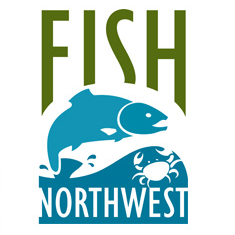Recently a website, srkwnogo.com, was created by a coward, or group of cowards, attempting to shame and dox boaters exercising their right to boat in the San Juan Islands. This is yet another attempt by fanatics, who for the most part inhabit the San Juan Islands, to restrict the rights of law-abiding citizens. These folks are attempting to coerce others to comply with their idea of what is lawful conduct. This is right in line with a recent report of a Sound Watch vessel chasing down a recreational boater using a flashing blue light (identical to those used by actual marine law enforcement on their vessels), in order to ‘educate them’ about whale avoidance. Impersonating law enforcement is further evidence of this fanaticism. Ironically many in this group live on San Juan Island and use the State Ferry system to get to their houses on the west side overlooking the coastline. Yet it has been scientifically shown that the Wa State Ferry System is the largest producer of underwater noise pollution of all vessels transiting the San Juans and surrounding waters, but these narrow-minded fools are blind to their own hypocrisy.
The irony gets thicker when one considers an event that occurred in August of 2022, when dive teams worked to recover diesel fuel after a fishing vessel sank west of San Juan Island. The 49-foot commercial fishing vessel had around 2,500 gallons of diesel fuel and a combined 100 gallons of hydraulic fluid and lubricant oil aboard. Diesel fuel was slowly leaking from the boat, which sat at a depth of more than 100 feet. This vessel, which was tribal-owned and operated, sank not just in the “no-go” zone, but in the heart of what has been deemed a ‘critical SRKW habitat’ by NOAA. The real plot twist here is this event represents the only real and true threat to the SRKW this past summer and it involved a commercial fishing vessel, which is exempt from any restrictions to fishing or navigation on the coast of San Juan Island. Yet not a word is mentioned on srkwnogo.com.
Back on Dec. 18, 2020, the Washington Department of Fish & Wildlife (WDFW) Wildlife Commission met to decide on whale watch licensing rules in the State of Washington. A mandatory year-round “no-go zone” along the west side of San Juan Island was embedded in the rules approved by the Commission. Why should rules governing whale watching concern you as a fisherman? Because the stage has now been set and the same rules will soon be imposed upon the recreational non-treaty fishing vessels. I listened to the entire meeting and heard 2-3 commissioners express their concern that the whale-watching rules adopted did not go far enough to restrict recreational vessels from viewing SRKW. In fact, commissioner Don McIsaac stated that because no restrictions were included in this rulemaking “we need to shame those recreational boaters who go whale watching”. I don’t think this was sarcasm on his part. I think he was expressing his true sentiment. You can view the recording of the meeting and make up your own mind.
There are a few key points to drive home here:
1. This portion of the whale-watching licensing rules was completely misguided and unnecessary. The SRKW no longer frequent the west side of San Juan Island. In 2020 they spent less than ten days along that coast. In the past five years, the pattern has been the same. The fact is they have changed their behavior, and this is the only thing we know for certain.
2. There is zero scientific evidence supporting the claim, by some, that vessel presence along the coast of San Juan Island drove the SRKW away, and there is zero scientific evidence suggesting the SRKW will return if vessel traffic is reduced or eliminated, a theory also posited as a fact by some.
3. San Juan Island is located within Marine Area 7. This Marine Area has endured a 93% reduction in the number of days available to fish for chinook since 2014. This has drastically reduced the number of chinooks caught and the number of days fishing boats are on the water. For the first time in the history of Puget Sound fisheries management, Marine Area 7 was placed on a chinook quota. In 2020 that number was less than 1700 fish and resulted in the lowest number of chinook ever caught in the summer season. Furthermore, the 2020 winter blackmouth season was completely closed.
4. Fishing vessels leave the dock to go fishing. Without a doubt, a few vessels will break off fishing to observe SRKW should the whales be in the area, but the vast majority of fishermen will continue fishing if they spot an Orca. They will do this using their 9-horsepower kicker motor producing minimal sound interference.
5. The recreational fishermen of Marine Area 7 have done their part in helping the SRKW recover. To close down these fishing grounds would be devastating to fishing opportunities in the San Juan Islands. It needs to be noted that this region is the primary spot for all salmon fishing within the San Jauns including Coho and Pink salmon.
Make no mistake, the no-go zone embedded in the newly adopted Commercial Whale Watching rules is the trojan horse. The proponents of this restriction will not stop until it is applied to all vessels. What’s more, I believe it naive to think that restrictions to recreational vessels would not be implemented unless commercial fishing vessels were included. It goes without saying that any new restrictions will not apply to the treaty vessels and so it would be difficult to imagine a rule that simultaneously disallows non-treaty commercial fishing boats.
